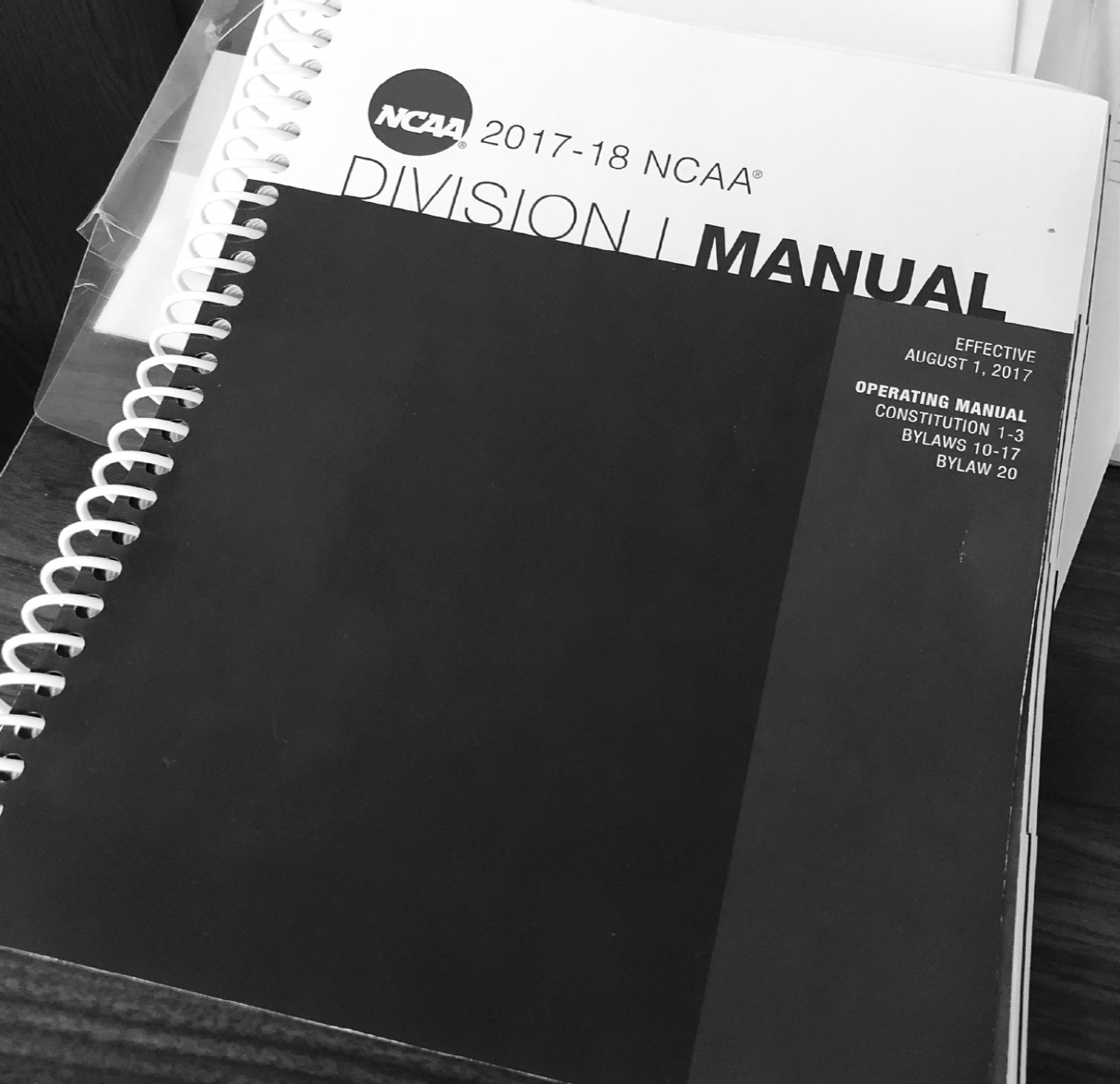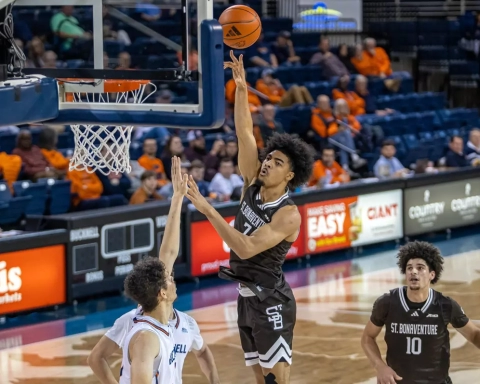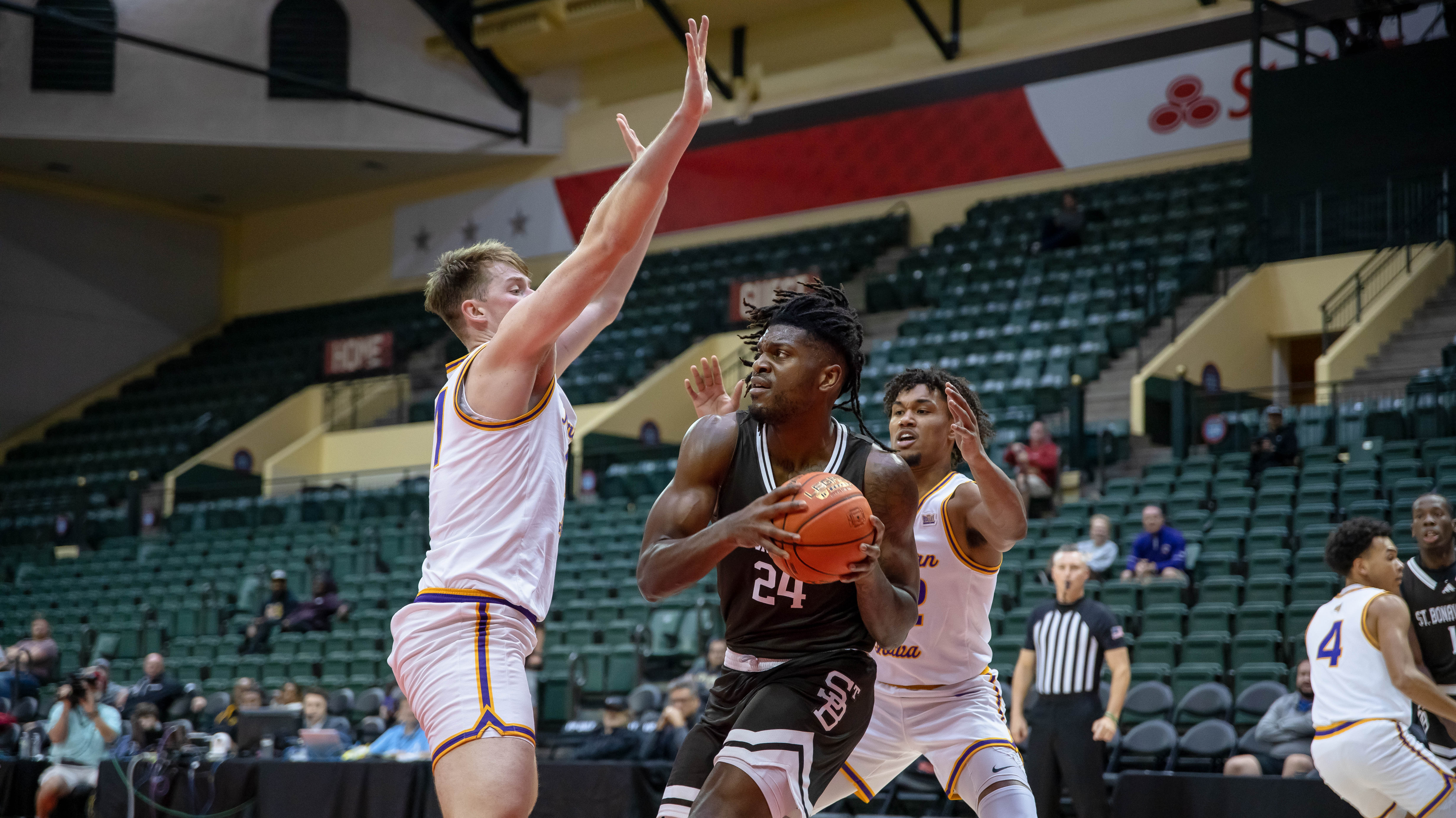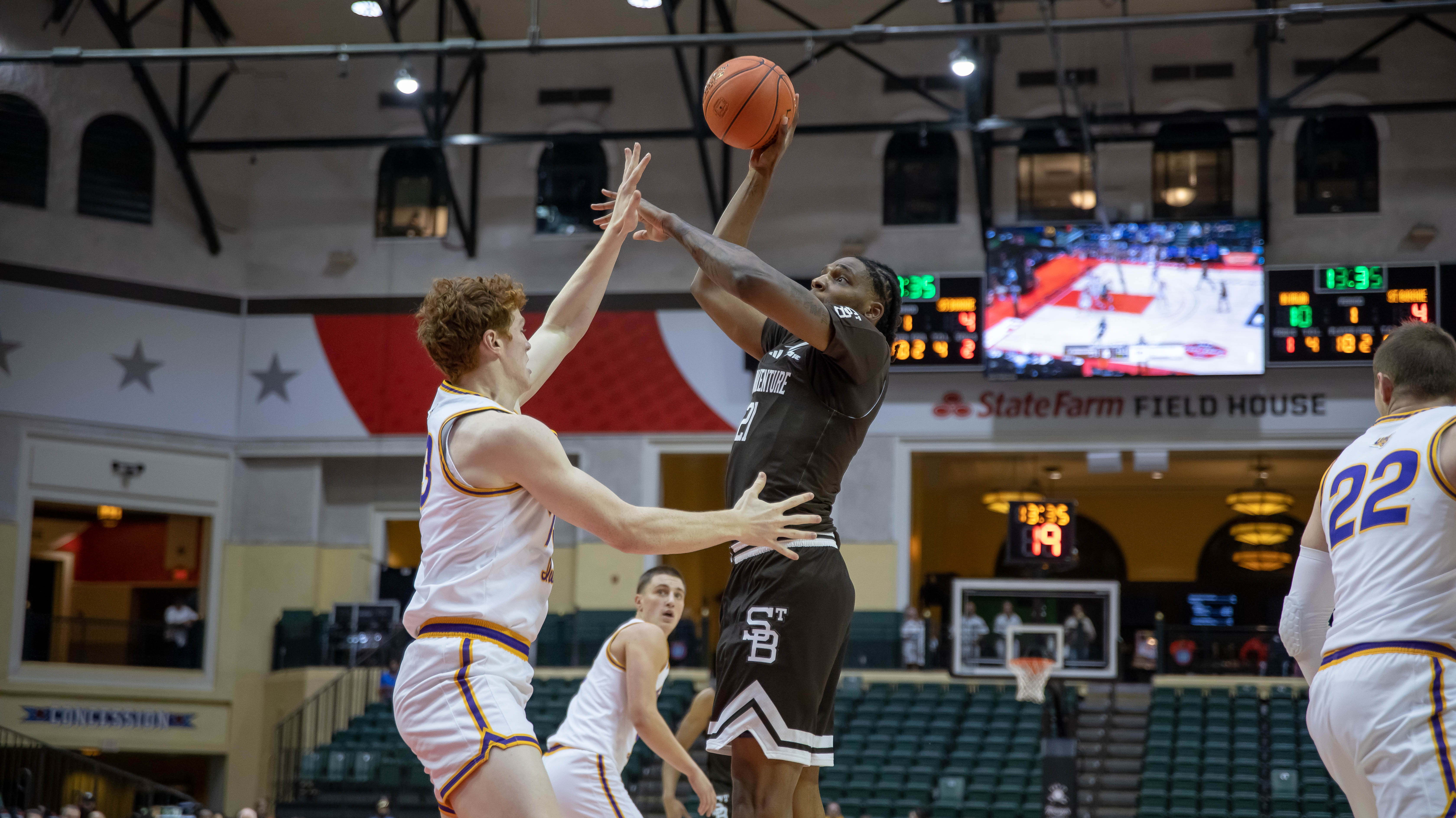Just like sports have rules to follow, the job of compliance director is important for athletics to make sure St. Bonaventure sports are complying with all the NCAA rules.
Sarah Pruess, the associate athletic director for compliance, said her job is a lot of behind-the-scenes work that most people don’t see.
“I don’t think most student-athletes know or even understand what I do,” Pruess said. “I basically make sure that everyone on this campus, and everyone associated with this campus, follows all the NCAA rules.”
Compliance works in many different areas, such as recruiting, eligibility and financial aid. For example, how many scholarships each sport can distribute to its student-athletes.
The reasoning behind having compliance within collegiate athletics lies in making sure there is a level of fairness and equality for everyone competing. Pruess said all parts of athletics have a part in compliance, even including marketing in regards to free tickets or donations.
Despite having a crucial role in the department, Pruess said she rarely sees student-athletes, besides when she watches them compete.
“All the student-athletes see me at the beginning of the year and I dish out a ton of information at once,” Pruess said. “Then, they only need to see me for a couple things afterwards: if something goes wrong, whether it be their eligibility or their financial aid. Maybe they want to transfer or maybe they have an injury.”
All the NCAA rules and guidelines are in the NCAA Division I Manual.
“The thing people don’t realize a lot of times is [that] it’s not my rule,” Pruess said. “So, you may have to enforce things you don’t agree with, but that is the rule.”
Pruess spins enforcing rules and making sure everyone is compliant into a more positive role.
“A lot of times, I call my job a problem-solver, so if somebody wants to do something, how can we get it done within the rules?” Pruess said. “I like to find a new solution for what someone wants to do that fits within our guidelines.”
Another function Pruess oversees is the number of competitions each team has throughout the year. Teams need to have a minimum and maximum number of games or meets.
“We have to make sure we meet all these minimums,” Pruess said. “With this spring, we have to make sure we’re having enough games or when [cross country runners] got injured, enough people participate, otherwise we can’t count it as a sport for the year.”
When there are cancellations, such as for baseball, softball and track this spring, working with the different sports is important, as each operates differently.
“Whether it’s finding a new meet or having it count differently, some have dates of competition, some have actual competition,” Pruess said. “You’re really looking into more than just going to swim or run, it’s all the little intricacies of that so that we stay within all the rules.”
Those intricacies are important to follow, and all the rules enforced by the NCAA make the job of compliance an integral part in running a collegiate athletic department.
“With the NCAA, you have to follow the school rules, the league rules and the federal rules, so it’s all-encompassing,” Pruess said.

Recap: Bonaventure MBB Defeats Big Four Rival Buffalo, Remains Undefeated at Home
Photo: St. Bonaventure Athletics BY: ANDREW HALE, EDITOR-IN-CHIEF The St. Bonaventure men’s





